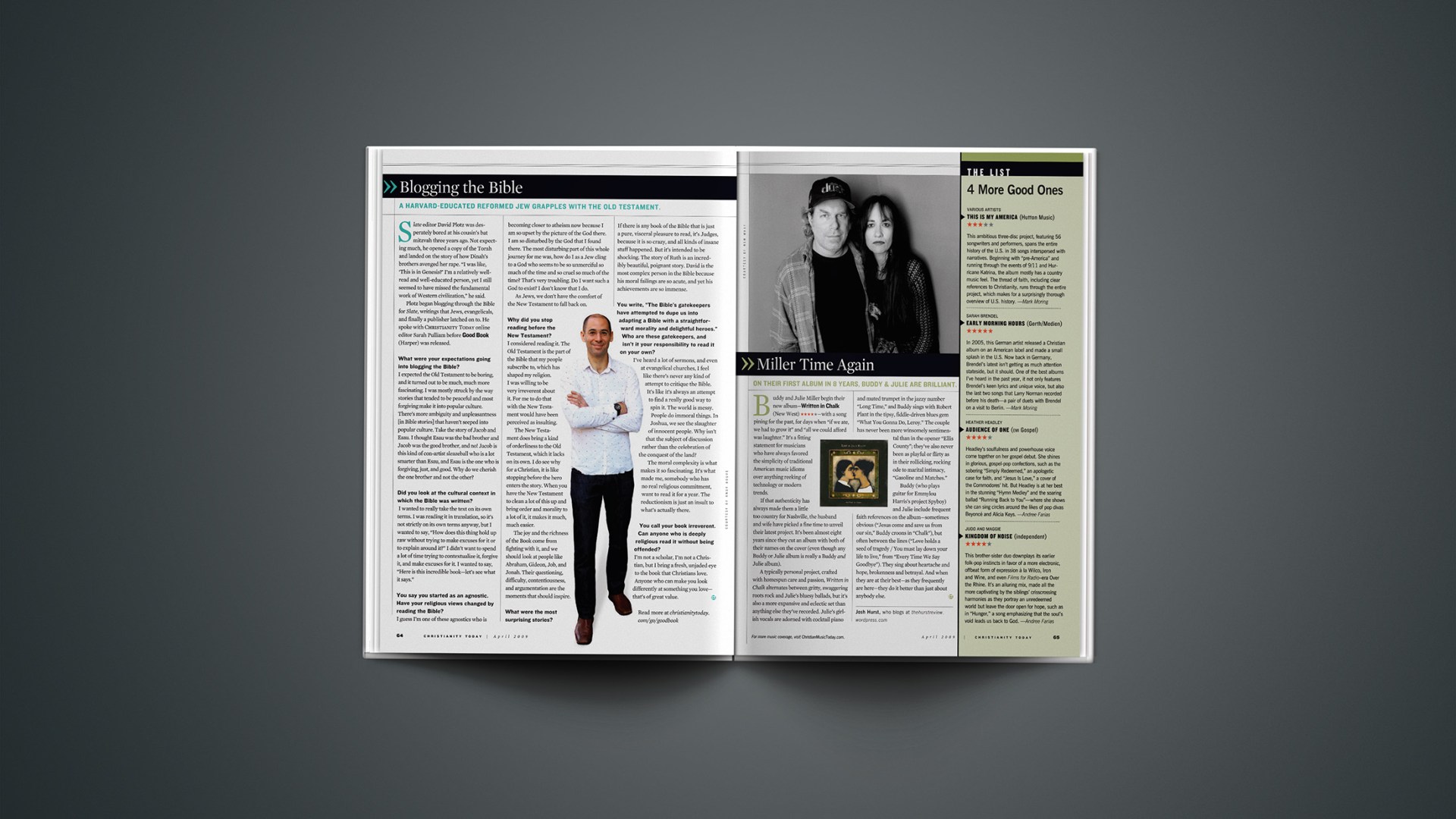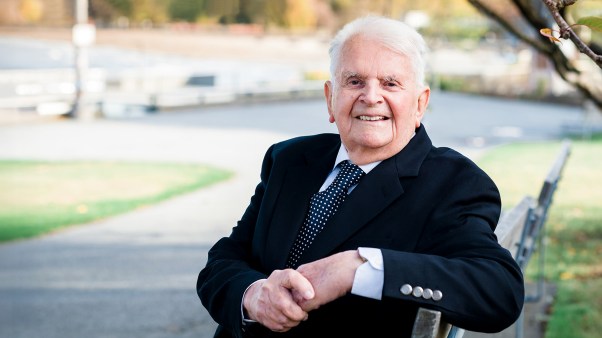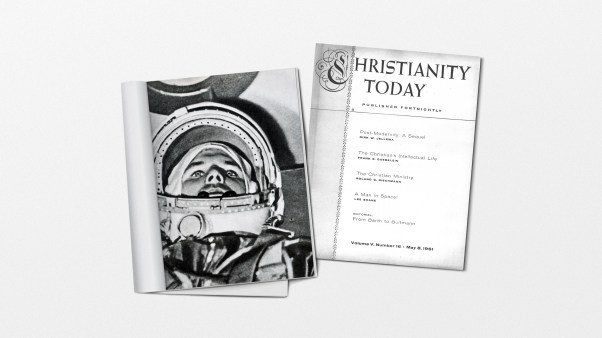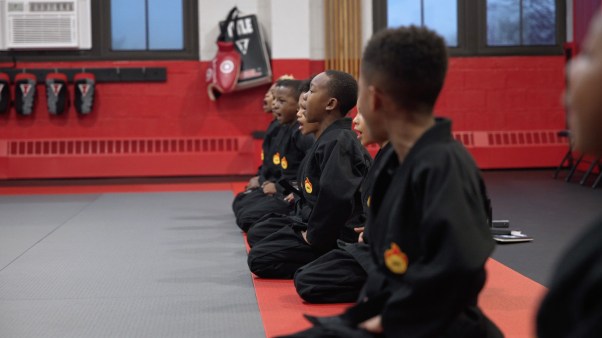Slate editor David Plotz was desperately bored at his cousin’s bat mitzvah three years ago. Not expecting much, he opened a copy of the Torah and landed on the story of how Dinah’s brothers avenged her rape. “I was like, ‘This is in Genesis?’ I’m a relatively well-read and well-educated person, yet I still seemed to have missed the fundamental work of Western civilization,” he said.
Plotz began blogging through the Bible for Slate, writings that Jews, evangelicals, and finally a publisher latched on to. He spoke with Christianity Today online editor Sarah Pulliam before Good Book (Harper) was released.
What were your expectations going into blogging the Bible?
I expected the Old Testament to be boring, and it turned out to be much, much more fascinating. I was mostly struck by the way stories that tended to be peaceful and most forgiving make it into popular culture. There’s more ambiguity and unpleasantness [in Bible stories] that haven’t seeped into popular culture. Take the story of Jacob and Esau. I thought Esau was the bad brother and Jacob was the good brother, and no! Jacob is this kind of con-artist sleazeball who is a lot smarter than Esau, and Esau is the one who is forgiving, just, and good. Why do we cherish the one brother and not the other?
Also, when you read the Bible casually, it seems much harder to read than if you kind of read it consistently. When you read it you just dip into it, the language is tricky. These stories don’t follow logically. But then when you start to get into the rhythm, it becomes much, much easier to read. This is sort of my exhortation to people who want to read the Bible: It starts out quite hard and then it gets significantly easier once you’ve you know, been doing it for a few chapters or a few days.
What kind of response did you get after you started blogging?
Most of the response was from really smart Christians and Jews who were biblically literate who liked the idea of an amateur taking this on. I was reading much more like an evangelical Christian than a Jew actually. Jews don’t read it alone in a way that a lot of Christians do.
Did you look at the cultural context in which the Bible was written?
I wanted to really take the text on its own terms. I was reading it in translation, so it’s not strictly on its own terms anyway, but I wanted to say, “How does this thing hold up raw without trying to make excuses for it or to explain around it?” I didn’t want to spend a lot of time trying to contextualize it, forgive it, and make excuses for it. I wanted to say, “Here is this incredible book—let’s see what it says.”
You say you started as an agnostic. Have your religious views changed by reading the Bible?
I guess I’m one of these agnostics who is becoming closer to atheism now because I am so upset by the picture of the God there. I am so disturbed by the God that I found there. The most disturbing part of this whole journey for me was, how do I as a Jew cling to a God who seems to be so unmerciful so much of the time and so cruel so much of the time? That’s very troubling. Do I want such a God to exist? I don’t know that I do.
As Jews, we don’t have the comfort of the New Testament to fall back on.
You wrote in your conclusion, ‘I am a Jew I don’t and can’t believe that Jesus died for my sins.’ Christians will say, ‘Of course you can.’
I certainly have had many Christians of whom I have loved who have told me that. I just know it’s not a need that I have. I can live a good and happy life without finding the comfort of that I know that other people do find. I guess my emotional and intellectual and theological state doesn’t have the urgency which might make me perceptive to having a Jesus-like figure. There’s not a yearning in me that is unmet.
I’m the son of a scientist. I’m never met theological explanation for the existence of God that passed my muster as a scientist. I’ve never seen anything that would present me proof in the kind of material that a God could exist. A moral structure can be created independent of whether a God exists and created the world and whether Jesus was reborn.
Why did you stop reading before the New Testament?
I considered reading it. The Old Testament is the part of the Bible that my people subscribe to, which has shaped my religion. I was willing to be very irreverent about it. For me to do that with the New Testament would have been perceived as insulting.
The New Testament does bring a kind of orderliness to the Old Testament, which it lacks on its own. I do see why for a Christian, it is like stopping before the hero enters the story. When you have the New Testament to clean a lot of this up and bring order and morality to a lot of it, it makes it much, much easier.
The joy and the richness of the Book come from fighting with it, and we should look at people like Abraham, Gideon, Job, and Jonah. Their questioning, difficulty, contentiousness, and argumentation are the moments that should inspire.
What were the most surprising stories?
Well, I mean pound for pound, verse for verse, Judges is the most appalling book but on the other hand the whole point of Judges is kind of to be appalling. If there is any book of the Bible that is just a pure, visceral pleasure to read, it’s Judges, because it is so crazy, and all kinds of insane stuff happened. But it’s intended to be shocking.
The book that delighted me was Leviticus. I am thinking in particular of Chapter 19 there is a section that I quote at length which is, This whole time for frame which echoed I am the Lord your God is just amazing, amazing!
The story of Ruth is an incredibly beautiful, poignant story. For a Christian, that would be a wonderful story just because the way it connects the genealogically of Ruth being the ancestor of Jesus and of David. David is the most complex person in the Bible because his moral failings are so acute, and yet his achievements are so immense.
You write, “The Bible’s gatekeepers have attempted to dupe us into adapting a Bible with a straightforward morality and delightful heroes.” Who are these gatekeepers, and isn’t it your responsibility to read it on your own?
I went to a pretty good Hebrew school as a kid and to a really good Christian Episcopalian high school. Reading the Bible wasn’t ever presented as anything but a source for morality.
I’ve heard a lot of sermons, and even at evangelical churches, I feel like there’s never any kind of attempt to critique the Bible. It’s like it’s always an attempt to find a really good way to spin it. The world is messy. People do immoral things. In Joshua, we see the slaughter of innocent people. Why isn’t that the subject of discussion rather than the celebration of the conquest of the land?
The moral complexity is what makes it so fascinating. It’s what made me, somebody who has no real religious commitment, want to read it for a year. The reductionism is just an insult to what’s actually there.
You call your book irreverent. Can anyone who is deeply religious read it without being offended?
I’m not a scholar, I’m not a Christian, but I bring a fresh, unjaded eye to the book that Christians love. Anyone who can make you look differently at something you love—that’s of great value.
Copyright © 2009 Christianity Today. Click for reprint information.
Related Elsewhere:
Good Book is available at ChristianBook.com and other book retailers.
Christianity Today also interviewed David Plotz after he started blogging.
Plotz also wrote in Slate about what he learned from reading the Bible. Slate also has a video of Plotz. He will chat live on the Washington Post‘s website today from 2-3 p.m.










